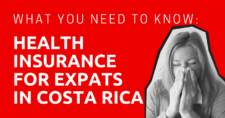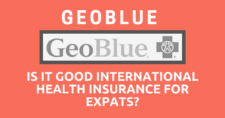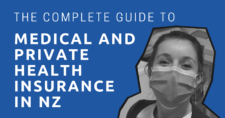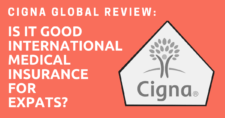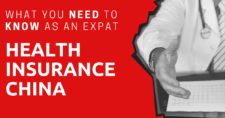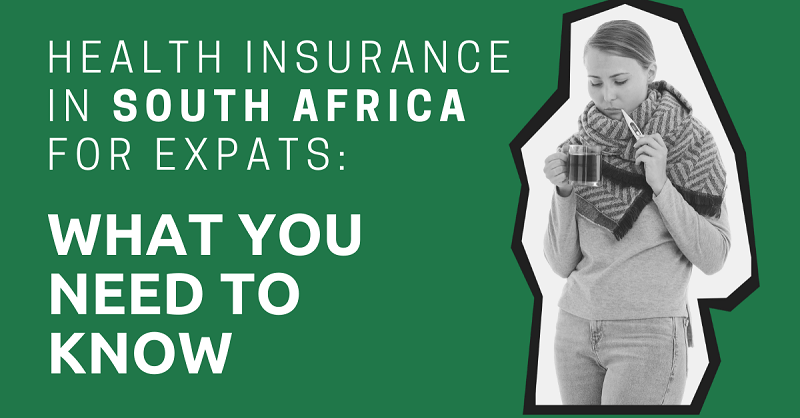
Healthcare is a big issue in South Africa. That’s primarily because there are currently underlying problems with the country’s public healthcare system.
Incidentally, South Africa has a unique type of healthcare insurance program called the Medical Aid Scheme, which is essentially a form of private insurance. In this article, we are going to explain everything you need to know about health insurance for expats in South Africa, including how to choose the right plan.
This article will take approximately 25 minutes to read. Don't have the time right now? No worries. You can email the ad-free version of the article to yourself and read it later!
Disclaimer: This article may include links to products or services offered by ExpatDen’s partners, which give us commissions when you click on them. Although this may influence how they appear in the text, we only recommend solutions that we would use in your situation. Read more in our Advertising Disclosure.
Contents
- Do You Need Health Insurance in South Africa?
- Health Insurance Options
- Public Insurance
- Why Get Private Health Insurance
- Private Health Insurance Options
- Cost
- Should You Choose International Health Insurance or Medical Aid Scheme?
- Applying for Health Insurance
- Should You Buy from an Insurance Company or Broker?
- Now, on to You
Do You Need Health Insurance in South Africa?
Although it’s not mandatory, it’s highly recommended to get health insurance in South Africa because the public health insurance in South Africa is not centralised and there is a quality issue with public hospitals, which will be discussed further in this guide.
For these reasons, most expats in the country decide to get private health insurance, so they can go to private hospitals whenever they need medical treatment without paying huge medical costs.
The quality of private hospitals in South Africa is quite good but it can be costly.
In addition, having health insurance gives you the ability to manage your finances; i.e., you know exactly how much you need to pay per year for your healthcare. Certain plans will also allow you to fly back to your home country to get a treatment there and have it covered by insurance.
And with health insurance, you can visit a hospital without second thought. Being able to go to a hospital as soon as you need to is beneficial because you get to find out early any serious sickness you may have — finding out sooner means you can get it treated right away. It also gives you peace of mind, knowing that you are covered even, or especially, when you have a serious disease, including COVID-19.
Health Insurance Options
There are three types of health insurance you can get in South Africa: international health insurance, medical aid scheme, and travel insurance.
Each type has its pros and cons.
International health insurance is usually the most expensive but comes with the highest coverage. It’s a popular option among expats because of its international coverage. You can keep the same plan even after moving out of South Africa.
Medical aid scheme is considered as local private health insurance. It’s a good option if you only need health coverage in South Africa and plan to stay here for a very long time.
As for travel insurance, it’s suitable only for those who visit South Africa less than 180 days a year.
Public insurance is not available to expats at the moment, but this may change in the future.
Public Insurance
South Africa is working on developing its centralised public health insurance system called National Health Insurance fund or NHI.
The NHI aims to provide free healthcare services to low-income South African residents. They might be able to choose a medical facility of their choice as long as it’s part of the NHI network.
However, even after the NHI becomes fully available, it shouldn’t have much impact on expats living in South Africa. Based on the information we have so far, NHI only gives medical coverage on medical emergencies and diseases that result from an outbreak, such as COVID-19, to non-South African residents.
But this may change in the future. In the meantime, we’ll watch out for updates on its official launch expected to be in 2030.
As of now, there is no centralised public health insurance in South Africa. Instead, the South Africa Government funds public hospitals to provide affordable healthcare through the Uniform Patient Fee Schedule system.

Under the system, the amount you pay to public hospitals in South Africa is based on your income. The lower your income, the less amount you need to pay.
Unless it’s absolutely necessary, you might not want to visit a public hospital in South Africa at all. Public hospitals in South Africa are known for being understaffed, having long waiting times, and lacking specialist doctors and modern facilities.
The waiting time is so long that you might not be able to see a doctor even if you go to a hospital at 8am.
Sanitary is also another big issue in some public hospitals. For instance, a cup for a urinal test might not be cleaned properly with sanitizer, or a nurse might not put her gloves in the trash after dressing an infected wound.
Exceptions apply to academic hospitals for medical schools such as Chris Hani Baragwanath Hospital. However, this type of hospital tends to have a very long waiting time especially for surgeries. Even cancer treatment can be delayed for many months.
Why Get Private Health Insurance
Because of the huge gap between the quality of services in public hospitals and private hospitals in South Africa, many people prefer to visit private hospitals.
You can find a lot of great private hospitals in South Africa that provide reliable treatments with short wait times. Actually, almost 80% of all doctors in South Africa work in private hospitals.
It can be said that private hospitals in South Africa offer topnotch healthcare services, making South Africa another popular destination for medical tourism especially in Cape Town and the Western Cape.
But high-quality services don’t come cheap. For instance, the South Africa government agreed to pay USD $950 to private hospitals for a single night of critical care for COVID-19 patients. However, private hospitals claim that this barely covers the cost and isn’t for commercial gain.
So, if you get admitted to a private hospital in South Africa, you’ll need to pay the excess costs out of pocket, which will likely be a significant amount as the government’s USD $950 is clearly insufficient.
A majority of expats who are living in South Africa have private insurance in order to give them access to private hospitals. If you don’t have private insurance, you will be asked to pay a deposit before getting treatment, which can be a serious issue in case of emergencies where swift treatment is required.
Private Health Insurance Options
There are two main types of private health insurance in South Africa: international health insurance and medical aid scheme.
International Health Insurance
International health insurance is often called expat health insurance because it primarily caters to expats.
International health insurance is generally recommended for expats no matter where they are in the world because of these reasons:
- You get health coverage no matter where you are in the world
- You can keep the same plan even when you move to another country
- The plan is comprehensive and easy to understand
The main downside of the expat health insurance is its price — it’s more expensive than local health insurance.
But looking from a price-per-coverage perspective, international health insurance can actually be cheaper.
In general, international health insurance has a wider range of coverage than medical aid schemes since the latter mainly aims to cover hospitalisation.
International health insurance’s area of coverage is also much wider since medical aid schemes only offers coverage within South Africa, except for a certain premium plan.
Providers
There are several international health insurance options available for expats living in South Africa.
If you are looking for a comprehensive plan from a well-known insurance company, check out Cigna Global. Their starting plan, the silver plan, offers decent coverage and should cover the basics.
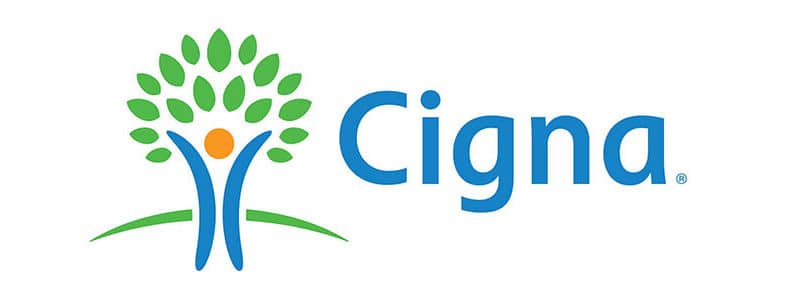
If you are an American citizen, you might want to take a look at GeoBlue. They have an affordable plan with US coverage, which is a good idea in case you want to fly back to the US to get treatment.
If you want a customisable plan that comes with unlimited coverage, you can check out William Russell. They’re not as popular as the other two, but they’re quite reliable and have been providing expat health insurance since 1992. They have comprehensive plans and offer dependable customer service.
If you need help choosing international health insurance, you can contact International Citizens Insurance. They are a brokerage company that specialises in expat health insurance and can help you choose the right plan based on your budget and requirement.
Coverage
International health insurance has easy-to-understand coverage. It gives you full health coverage as long as expenses fall under the annual limit.
It means that no matter which hospital you go to, you can expect your health insurance provider to pay all your health expenses in full should you get hospitalised, including:
- Private standard room
- Doctor’s fee
- Hospital fee
- Surgery fee
- Scans
- Medications
A higher-tier plan gives you more health coverage and a higher annual limit.
Area of Coverage
International health insurance usually comes with worldwide coverage excluding the United States.
With international health insurance, you enjoy the following benefits:
- You are covered no matter where you are in the world
- You can fly home and get treatment in familiar settings
- You can keep the same plan when moving to a new country
Note that if you want your plan to include coverage in the US, the premium amount will increase significantly.
Annual Limit
Annual limit is the maximum amount of money that the insurance company will pay for you per year. It usually starts at USD $1,000,000, which should be enough for expats in South Africa.
Some insurance companies, such as William Russell, give you unlimited annual limits on every plan.
Cash Compensation
Some insurance companies may give you cash while you’re hospitalised, depending on your plan. For example, under Cigna Global‘s silver plan, you will be paid USD $100 a day and up to USD $1,000 to a parent or guardian.
Out-patient Treatment
Out-patient treatment is usually available as additional coverage.
Instead of full coverage, out-patient treatment imposes a cap on how much money you can claim per visit.
Health Checkups
Higher-tier international health insurance plans usually come with health checkups coverage. But it doesn’t mean you can choose the most expensive checkup package and expect your insurance provider to pay in full.
Rather, there’s a limit on how much money you can claim on health checkups per year.
Alternative Treatment
Depending on your plan, you might be able to claim for alternative treatment, including Chinese medicine, acupuncture, or physiotherapy. The insurance provider usually imposes a limit on the amount that you can claim for alternative treatments.
However, they may also give you full coverage of their premium plan.
Medical Evacuation
Most international health insurance plans come with medical evacuation coverage, which can be a life-saver especially when you live in a rural area. This benefit is not offered under the medical aid scheme.
Maternity
Maternity coverage provided by international health insurance comes with both baby delivery coverage and routine maternity care.
The amount of coverage depends on your plan.
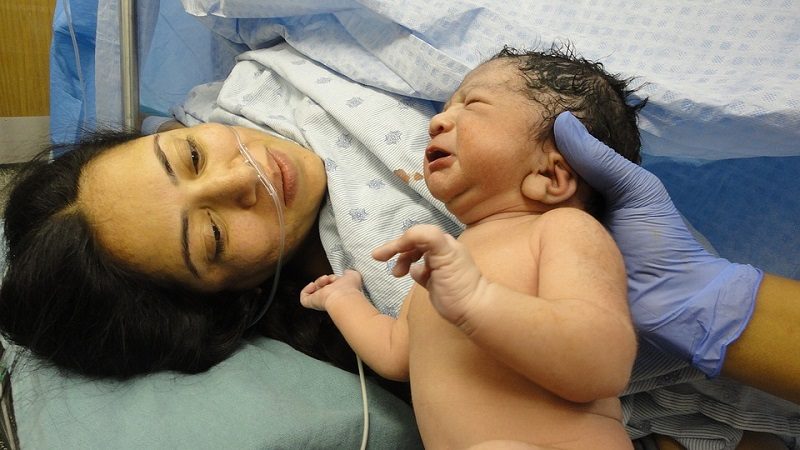
Please note that maternity coverage usually has a waiting period of 9 to 12 months before you can use this benefit.
Copay and Deduction
Copay and deduction is a good way to decrease your premium.
Copay refers to a certain percentage that you need to pay out of your pocket, while deduction means the minimum amount you need to pay before the insurance pays you.
For example, if your plan has a 20% copay, you need to pay 20% of the total medical bill yourself.
On the other hand, if your plan comes with a $2,000 deduction, you need to pay $2,000 first before the insurance company pays you.
Making a Claim
Making a claim is a disadvantage of international health insurance. Most of the time, you need to pay out of pocket first and file a claim to your insurance company by sending them a receipt and medical certificate for a reimbursement.
However, for hospitalisation, it’s possible for your insurance company to pay the medical facility directly if you visit a hospital that belongs to their network of hospitals or contact them prior to your visit.
Prior Authorization
Prior authorization is usually required for any sickness in which a treatment can be planned in advance. It is also good practice to contact an insurance company before visiting a hospital due to the following reasons:
- You will be fully confident that the insurance company will pay for your medical expenses
- The insurance company can advise you on which hospital you should go to that’s most suitable to your condition
Prior authorization is an important aspect of health insurance. All insurance companies in the world, including medical aid schemes, prefer patients to contact them first especially those who are getting a treatment for serious conditions.
Otherwise, they may reject your claim.
Medical Aid Scheme
Medical aid scheme is basically local insurance provided by private insurance companies in South Africa. All plans from the medical aid scheme must be non-profit and regulated by the Council for Medical Schemes or CMS.
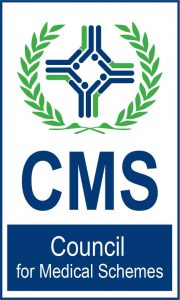
There are around 22 providers that provide the medical aid scheme plan in South Africa, with some of the biggest providers being: Discovery, FedHealth, Bontas, MediShield, and Momentum Health.
Coverage
Medical aid scheme in South Africa is a unique system. All plans from all providers come with full health coverage as long as you visit hospitals as specified by that particular plan.
For example, the lowest plan may allow you to visit only general private hospitals while the highest plan allows you to visit premium hospitals in South Africa.
If you visit a hospital that is out of your plan’s network, you need to pay the difference yourself.
Coverage Area
Plans from the medical aid scheme will cover only your health expenses in South Africa.
However, some providers may have a plan that comes with international coverage on their most expensive plan.
Medication
Plans from the medical aid scheme has a limit on how much they pay for medications. You will also need to pick up your medications at designated pharmacies specified by your plan.
The higher plan gives you higher coverage limits and access to more choices of medications and pharmacies.
Specialists
If you consult a doctor that is under your plan’s network, the doctor’s fee should be covered in full.
However, not every doctor is under the medical aid scheme. If you want to see a doctor or specialist that is outside of your network, you may need to pay the difference of the amount covered by the insurance and the total cost of the doctor’s fees.
Each plan gives you a limit on how much you will be covered when seeing a specialist outside of the network. The higher plan comes with a higher amount of coverage.
Preexisting Conditions
One of the great things about the medical aid scheme is that it comes with pre-existing conditions coverage.
Preexisting conditions are the main exclusion for most private health insurance plans in the world.
With the medical aid scheme, your preexisiting condition will be covered. However, it doesn’t mean it’s going to be covered right away.
Most plans have a one-year waiting period for preexisting conditions.
Exclusion
The medical aid scheme pays only for medical-related expenses that are deemed necessary by your medical provider.
It means a medical aid scheme provider won’t pay for items that are not related to medical expenses at all, including food or toiletries while you are hospitalised.
It also doesn’t compensate for loss of income.
In addition, it won’t cover supplementaries or cosmetic surgeries, unless a doctor deems them necessary.
Self-inflicted injury and fertility treatments are also excluded.
Waiting Period
Waiting period is a crucial part of the medical aid scheme. If you haven’t applied yet for any medical aid scheme plan, chances are that you’ll need to wait for at least three months before you can use medical aid benefits, because the processing period usually takes that long.
So, if you need to visit a hospital during that three-month period, you’ll need to pay out of pocket.
If you have any preexisting condition, you won’t be covered for it for at least one year. The same applies for pregnancy.
Chronic Disease
As long as they are listed under the Prescribed Minimum Benefits, chronic diseases — including asthma, diabetes, cardiac failure, and hypertension — will be covered in full.

Prescribed Minimum Benefits (PMB) are regulations from the Council of Medical Scheme that enforce all plans from the medical aid scheme to cover the cost of treatment and diagnosis of chronic diseases and emergency conditions.
You can find out more information about the PMB, including a list of covered chronic diseases, from the CMS website.
The higher tier plans offer greater chronic diseases coverage.
Cancer
Cancer is usually covered by the medical aid scheme. However, depending on your plans, there might be a coverage limit, around 400,000 rand (USD $27,000). In addition, the plan might come with a 20% copay.
If it’s a budget plan, you will be asked to get treatment for your cancer at a public facility.
Day-to-Day Coverage
Day-to-day coverage is usually available on the higher-tier plans of the medical aid scheme. It gives you outpatient coverage for a sickness that doesn’t need hospitalisation.
However, the way it works can be confusing for expats. Instead of a coverage limit, coverage comes in the form of a medical savings account. You can make monthly contributions to this account, for example, 20% of your premiums.
When you make a claim for the day-to-day coverage, your claim amount will be deducted from your medical savings account. In case your claim exceeds your account balance, you’ll need to pay the excess amount.
On the other hand, a high-tier plan from the medical aid scheme may come with unlimited coverage in case you reach an annual threshold.
Premium
Medical aid scheme requires a monthly contribution. You need to pay your insurance monthly, which may range from 900 rand (USD $60) to over 7,300 rand (USD $500) for a premium plan.
Please note that if you apply for any plan from the medical aid scheme at age 35 or older, your premium can be 175% higher than usual.
Travel Insurance
If you plan to stay in South Africa for less than 180 days, you should consider getting travel insurance.
It comes with health coverage in addition to travel-related benefits such as flight delay, baggage loss, and trip cancellation.
Many travel insurance plans also come with medical evaluation coverage.
Although it is cheaper, you should note that health coverage provided by travel insurance is less comprehensive than that of an actual health insurance.

Travel insurance companies normally call it “emergency medical coverage” that gives you health coverage on accidents and sickness that can happen during your trip only.
It doesn’t cover chronic diseases.
When you have serious injuries or sickness, they may only patch you up, send you home, and transfer you to a hospital in your hometown, and have the public insurance pay for your treatment.
If you prefer travel insurance, you should check out World Nomads or ACS Global. These two providers offer comprehensive plans for expats.
In case you are a digital nomad who’s always moving to different countries, you should check out SafetyWing. They have a unique travel insurance plan that comes in the form of a subscription system. It gives you coverage no matter which country you are moving to as long as you keep your plan active.
Cost
People have different ways of paying their health insurance plans. One expat may pay USD $100 a month while another person may pay over USD $300 a month.
It all comes down to four main factors:
- Your age
- Your health condition
- Your insurance plan’s coverage
- Copay and deductible options
The older you are, the higher the amount you need to pay for health insurance since you are more prone to sickness.
If you have any preexisting condition, the insurance company may increase your premium in order to provide coverage for your condition.
The higher the coverage and coverage limit you are insured, the higher the amount you need to pay. You can decrease your insurance plan payments with copay and deductible.
Taking into account all these factors, the exact amount you need to pay for health insurance in South Africa may not be easily determined, simply because different people have different requirements.
Therefore, instead of finding the cheapest plan available on the market, it’s better to find a plan that comes with all the coverage you need and the price you can pay.
It’s also possible to find the same plan with similar coverage from two insurance companies at a different price. It all boils down to you choosing a provider you think is right for you.
Many expats pay more in order to be insured by a well-known company because they want to make sure they get good service. More importantly, they want the assurance that the insurance company will pay for their medical expenses when they need it.
Broadly speaking, a comprehensive health insurance plan in South Africa should cost you around USD $200 a month.
Should You Choose International Health Insurance or Medical Aid Scheme?
This is a popular question among expats in South Africa when it comes to choosing private insurance.
However, there is no definitive answer to this question. Both products are good choices for expats. It all depends on what you need the most.
To make the best decision, you should ask yourself these three questions:
- How long are you planning to stay in South Africa?
- Do you need international coverage?
- Do you need medical evacuation?
Let’s take a closer look at each factor.
How Long Are You Planning to Stay in South Africa?
The medical aid scheme is an interesting option if you plan to stay in South Africa for the rest of your life since the plan is made for locals and permanent residents.
The preexisiting condition coverage, even though it comes with a one-year waiting period, is perfectly serviceable. You normally can’t find it in any private health insurance plans unless you make additional contributions to your premiums.
On the other hand, if you plan to leave South Africa at some point in the future, you’ll be better off getting international health insurance. This way, you can keep the same plan even when you move to a different country. And having the same plan comes with two main benefits:
- You won’t have to adjust your insurance plan for any preexisting condition you may have
- You can keep a plan that you’re already familiar with and don’t have to learn a new healthcare system and choose new health insurance in a new country.
Do You Need International Coverage?
If you need international coverage, including an opportunity to have a treatment in your home country, you need to go with international health insurance.
Medical aid scheme mainly only comes with domestic coverage in South Africa. Even if some of their plans come with international coverage, it isn’t as good as and even more expensive than international health insurance.
Do You Need Medical Evacuation?
Medical evacuation is a big issue. It’s one of the most expensive healthcare services which can easily cost more than USD $100,000.
If you live in a major city in South Africa, medical evacuation coverage isn’t necessary since it’s likely that there will be a lot of easily accessible hospitals within your residential area.
On the other hand, if you live in a rural area, then it’s a must-have. In South Africa, it is hard to find a hospital in a rural area.
And medical evacuation is mainly available only on international health insurance plans.
Applying for Health Insurance
Applying for health insurance in South Africa is pretty straightforward. Many insurance companies or brokers usually have an online form where you can enter your personal information in order to get an online quote.
Then, you will be contacted by their representatives to give you quotes and answer any questions you may have.
If you agree to buy an insurance plan, you only need to fill out an application form, which asks about your health information and medical history.
It is recommended to answer all questions honestly. Otherwise, they might cancel your plan when they find out any false information.
Some insurance providers may ask you to do a health checkup at a medical facility under their network.
Should You Buy from an Insurance Company or Broker?
There is no real difference between buying health insurance through an insurance company or an insurance broker. You get the same plan at the same price.
The insurance company tends to know more about their products while you can get more options from a brokerage company.
Now, on to You
We hope that this article answers everything you need to know about health insurance in South Africa.
Please note that while we are trying to make this article as accurate as possible, mistakes may still happen. Therefore, it’s best to talk to an insurance broker or an insurance representative first before you purchase any plan.
Health insurance is a complicated yet important matter. You want to make sure you get the right plan for you and your family.
If you have any questions or want to share your experience about the healthcare system in South Africa, please feel free to leave a comment below.


